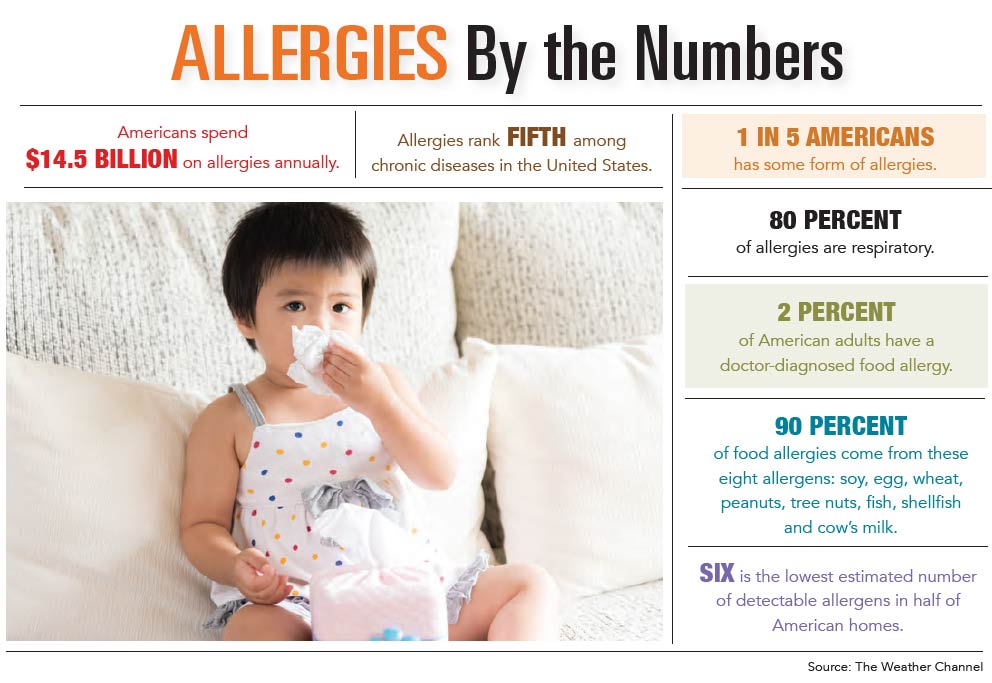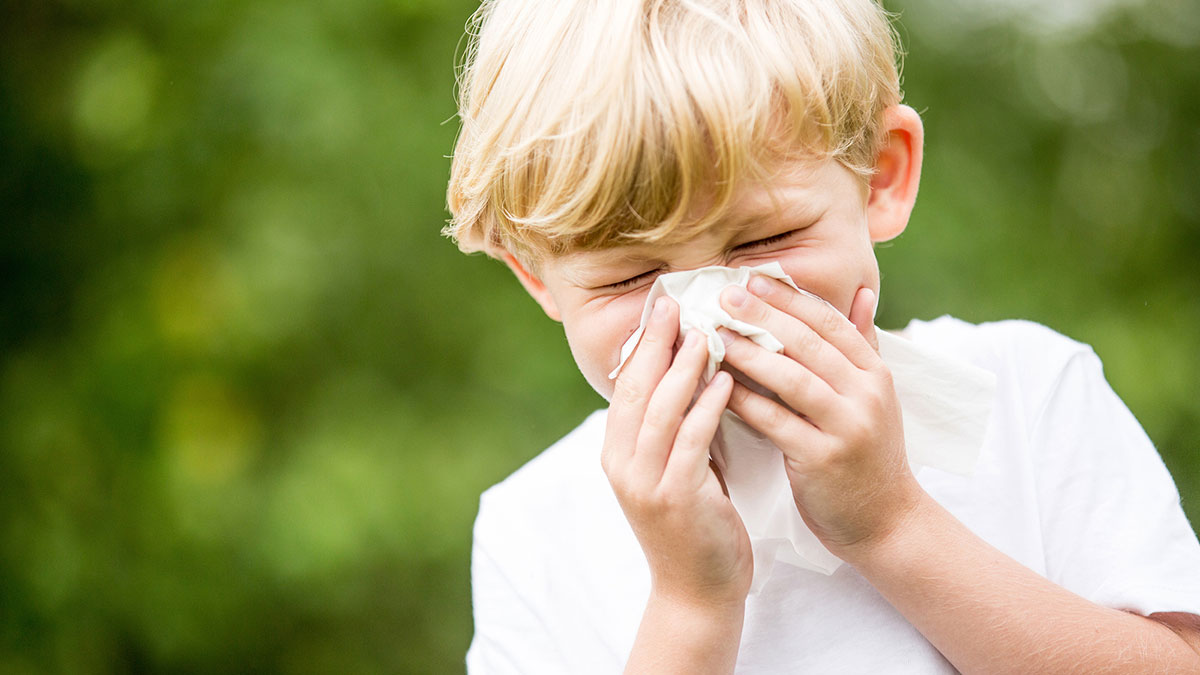It’s that time again. Warmer weather, longer days and blossoming flowers abound, bringing people out from their winter hibernation and into the glory days of spring and summer. Unfortunately, it also brings some unwelcomed problems for many people – allergies. It’s estimated that more than 50 million people in the United States alone suffer from allergies each year, making it one of the leading chronic conditions worldwide.
Dr. Carolyn R. Word of Charleston Allergy and Asthma explained that people endure a variety of allergies, with the most common being inhalant allergies.
“This time of year, we obviously see a lot of pollen coming from grass, trees and even weeds,” she said. “They’re called inhalant allergies because they’re small enough to be lifted by the air and we breathe it.”
An allergic reaction begins in the immune system, which protects us from invading organisms that can cause illness.
“If you have an allergy to something like tree pollen, mold or cats, for example, your immune system mistakes an otherwise harmless substance as an invader,” Dr. Word explained. “Your body overreacts to the allergen by producing immunoglobulin E (IgE) antibodies, which then cause the release of histamine and other chemicals, causing an allergic reaction.”
Typical allergic reactions can include sneezing, coughing, a runny or stuffy nose, itchy eyes and fatigue.
“The weather can have an impact on how severe reactions are,” Dr. Word said. “When it’s hot and dry, pollen is more abundant on surfaces and in the air. After a good rain, the pollen counts drop a little.”
In addition to pollen, other allergy triggers include dust mites, indoor and outdoor mold and pet dander. If allergic reactions are severe enough, it can be difficult for someone to function day to day. While there are plenty of home remedies to provide relief, Dr. Word said knowing exactly what you’re allergic to can make managing allergies much easier.
“If you know you’re allergic to pollen, check the pollen counts before you head outside. See if it’s going to be dry and windy that day. When you come in from outside, it’s a good idea to shower, change your clothes and, at night, keep your windows closed,” she added.
Though it might be difficult, allergy sufferers should try to stay away from whatever causes the allergic reaction in the first place. Trees tend to pollinate in the spring, grasses in the summer and weeds in late summer and fall. Mold releases its spores from spring to fall. While it’s unreasonable to stay indoors for months on end, Dr. Word suggested trying to limit time outside when the pollen count is high.
“If possible, have someone else do outdoor tasks,” she said.
Getting tested to pinpoint what allergies a person has is really the most effective treatment.
“Once we know what you are allergic to, we can see if allergy shots are a good option for you. If they are, it’s the most effective option for desensitizing the body so it no longer reacts to those allergens,” Dr. Word pointed out.
While it may sound more complicated than just taking over-the-counter medications, Dr. Word explained that the cost benefit of allergy shots is greater in the long run.
“It’s tailored to your needs, and, while it can take a year or so to see the full effect and no longer show allergy symptoms, it’s more cost-effective than buying allergy medications every year. And,” she added, “the shots are much more natural.”
In addition to allergies, Dr. Word said they also see many patients who are suffering from asthma.
“We see asthma in both children and adults; about 10 percent of children and about 12 percent of adults suffer with this disease,” she commented.
Each year, the Asthma and Allergy Foundation of America (AAFA) declares May to be “National Asthma and Allergy Awareness Month.” It’s a peak season for asthma and allergy sufferers and a perfect time to educate people about these diseases.
Asthma is a chronic lung disease that inflames and narrows the airways in the lungs. Today, more than 26 million people in the United States suffer from asthma, and, most often, it starts during childhood.
Asthma attacks can be life-threatening and are one of the leading causes of absences from school and work. Many people don’t realize they have asthma; sometimes a cough that won’t go away is the only symptom.
“The majority of patients who suffer from asthma also have allergies,” Dr. Word said. “In many people, the allergies can exacerbate the asthma, and, in most cases, it is the allergies that trigger their asthma attacks.”
Across the board, allergies appear to be on the rise. Dr. Word said there are several theories addressing this issue.
“One theory is based on hygiene. We’re cleaner now,” she said. “We spend more time inside, and we’re exposed to fewer germs. That’s the leading theory right now.”
For more information on allergies, asthma and available treatments, visit www.charlestonallergy.com.
By Diane Pauldine








